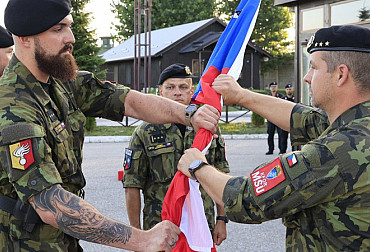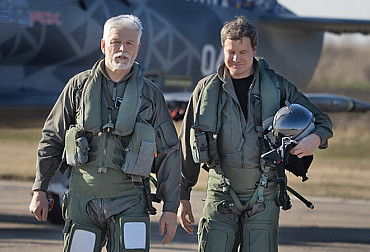Modernisation of the Slovak Armed Forces should continue, majority of Slovak citizens think so
After many years, security has become the number one issue in Europe, not only in expert circles, but also in society as a whole. The reason for this is, of course, the year and a half of open military conflict between Ukraine and Russia, which has disrupted the security situation in Europe. In this context, European states have begun to focus more on their own security, which is undoubtedly linked to the modernisation of their armed forces. Slovakia is no exception. A recent public opinion poll showed that the Slovak public supports the modernisation of the Armed Forces of the Slovak Republic (AF SR) and the majority of the population is in favour of its continuation.
To begin with, several milestones were achieved last year in the modernisation of the Slovak Armed Forces. For example, the Slovak Ministry of Defence concluded contracts for the purchase of 76 Patria 8x8 armoured fighting vehicles and 152 CV90 tracked infantry fighting vehicles with 35 millimetre calibre cannon. Another six Zuzana 2 self-propelled wheeled howitzers were introduced into the Slovak Armed Forces, the installation of two of the three RL-2000/MSSR-1M and PAR-E airfield surveillance radar sets was completed, and additional Spike anti-tank missiles were ordered through the NSPA. Consultations and negotiations with the US were also underway for the procurement of JLTV 4x4 vehicles, assault rifles and anti-drone systems with US grant money of $200 million.
 Picture: Zuzana 2 self-propelled howitzer | Michal Pivoňka / CZ DEFENCE
Picture: Zuzana 2 self-propelled howitzer | Michal Pivoňka / CZ DEFENCE
As stated in the Comprehensive Defence Assessment of the Slovak Republic for 2022, in that year the Slovak army had to face problems with obsolete military equipment and military material. Most of the Slovak Armed Forces equipment is beyond its useful life, with the average age of this equipment ranging from 20 to 35 years. However, as already mentioned, in recent years the Slovak Ministry of Defence has concluded several important contracts that will significantly improve the combat capabilities and potential of the Slovak Armed Forces. According to Slovak public opinion, the new government, which will emerge from the extraordinary parliamentary elections on 30 September, should continue this trend.
In a recent AKO poll, 66,7 % of respondents were in favour of further modernisation of the Slovak Armed Forces. The survey was conducted at the end of July on a sample of 1,000 respondents. When asked "in your opinion, should or should not the future government invest in the modernisation of the Slovak army", 33.2% of respondents answered definitely yes and 33.5% said that the new government should invest in the army. A total of 26.8% of respondents were against continued modernisation, of which 12.4% were strongly opposed to further investment in the modernisation of the army. 6.1% of respondents did not want to answer or did not have a clear opinion. According to Václav Hřích, the director of AKO, it was the conflict in Ukraine that motivated the public to become interested in the state of the Slovak army. At the same time, Hřích added that "only" a third of respondents clearly expressed themselves in favour of continued modernisation, showing that the importance of the topic needs to be discussed a bit more.
 Picture: A recent public opinion poll showed that the Slovak public supports the modernization of the Armed Forces of the Slovak Republic (AF SR) and the majority of the population is in favor of its continuation. | Michal Pivoňka / CZ DEFENCE
Picture: A recent public opinion poll showed that the Slovak public supports the modernization of the Armed Forces of the Slovak Republic (AF SR) and the majority of the population is in favor of its continuation. | Michal Pivoňka / CZ DEFENCE
Although the majority of respondents expressed that the modernisation of the Slovak Armed Forces should continue after the upcoming parliamentary elections, there is still a constant need to talk about the state of the army and security in general. A modern army is one of the key tools for the protection of the sovereignty of the state and the continuous development of the armed forces should be one of the top priorities for any government, be it right or left, conservative or liberal. An army with sufficient potential to deter an adversary can protect the citizens of a given country from external threats and should therefore not be seen as an ideological but as a practical tool for ensuring the security of the state. A combat-capable and well-equipped army should be a priority for the whole of society, and not only in times of security instability.





















